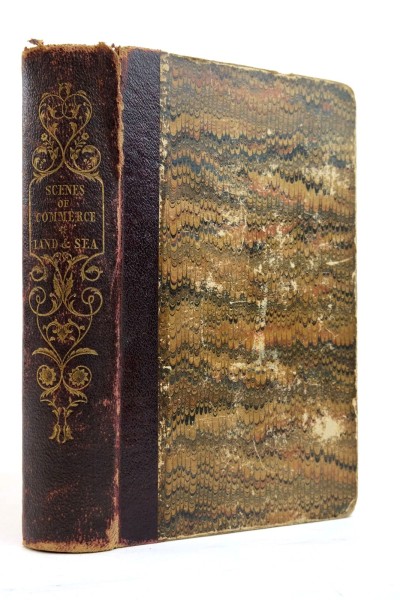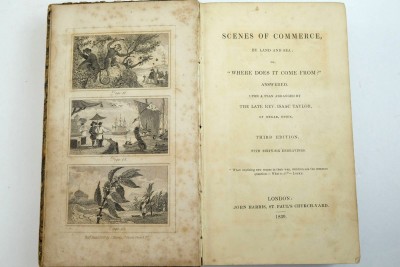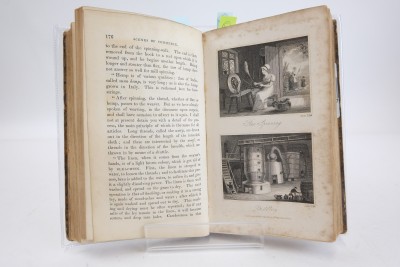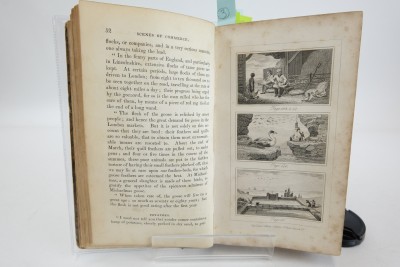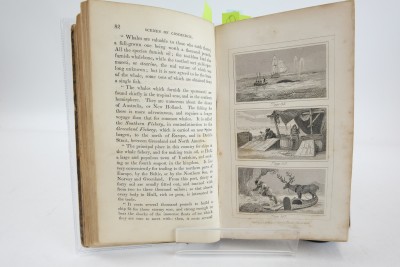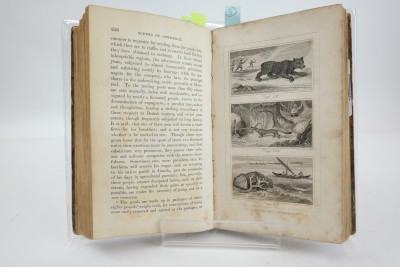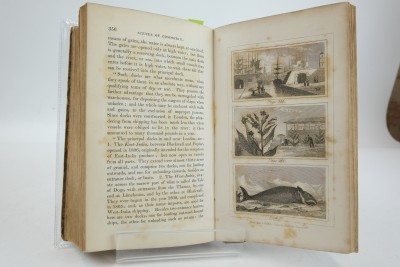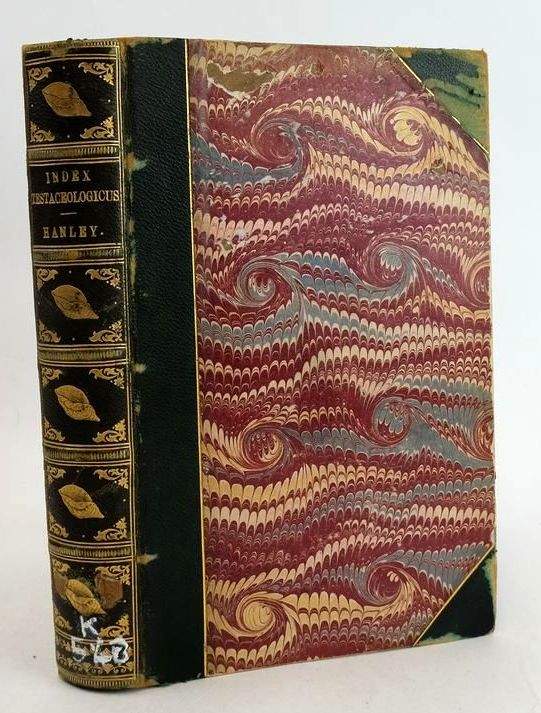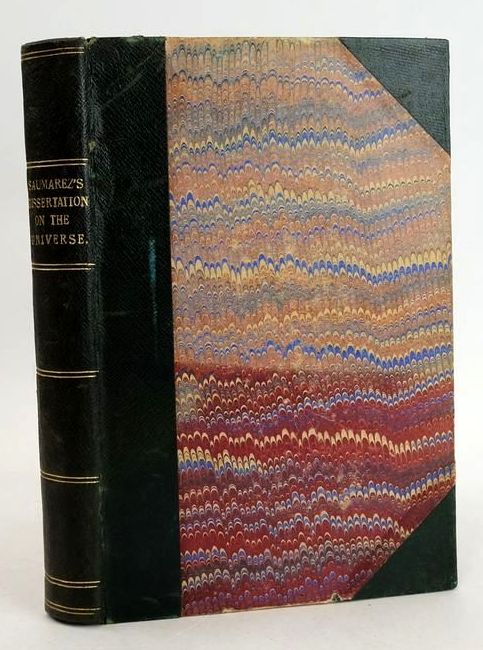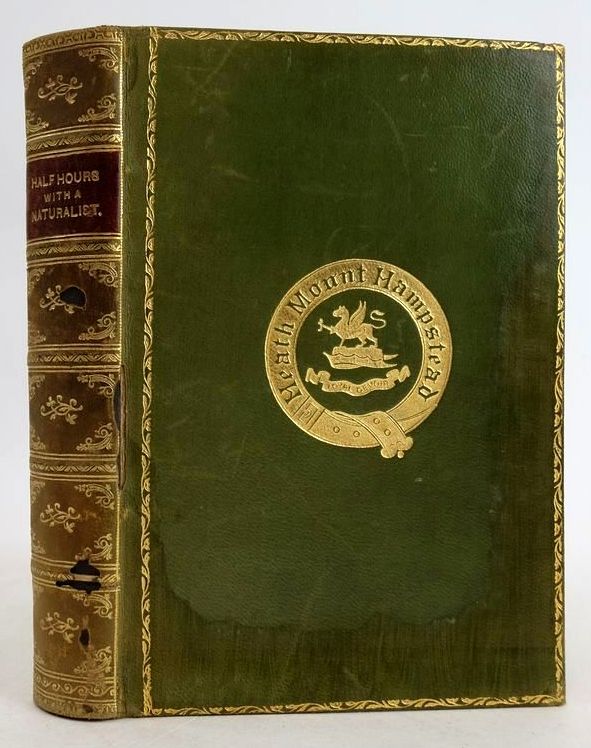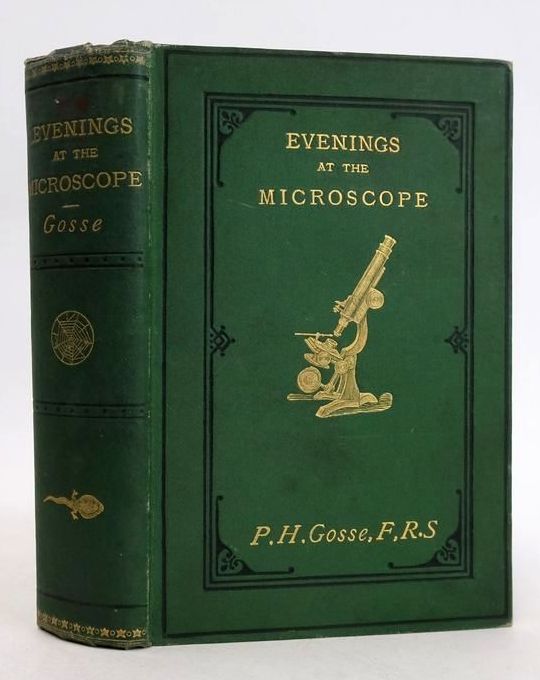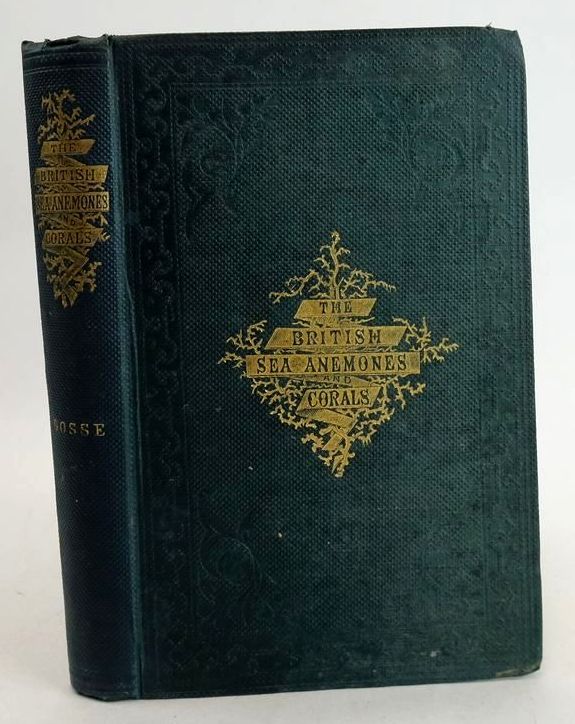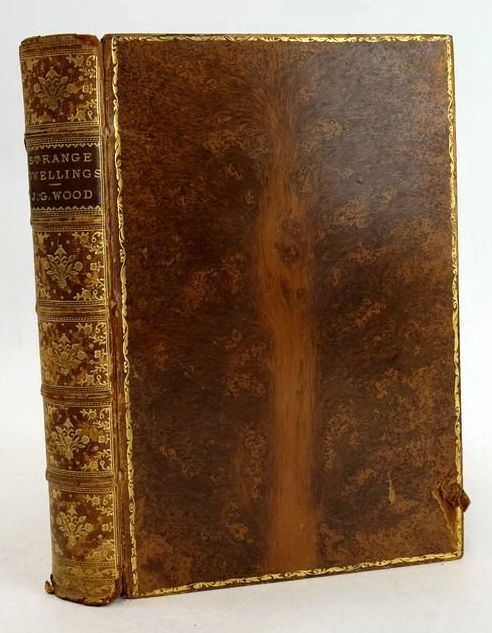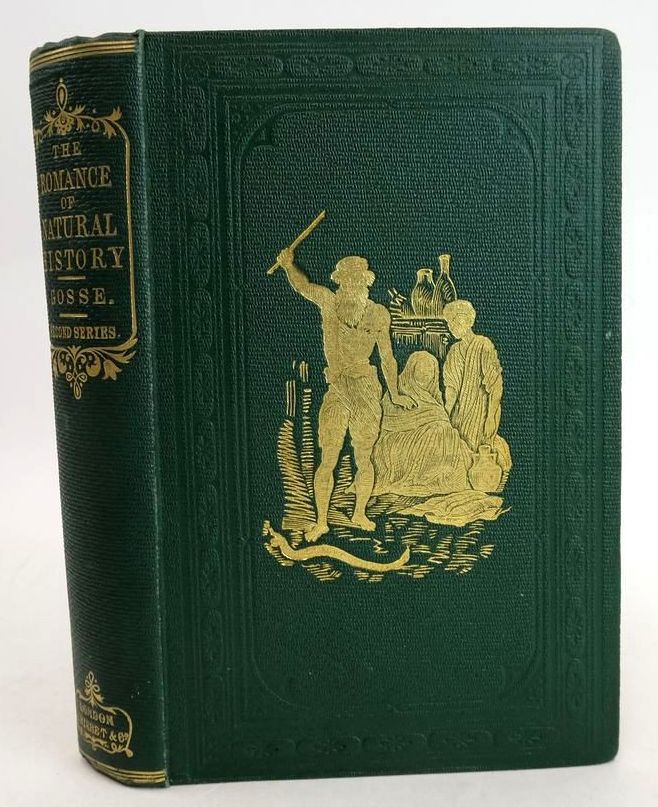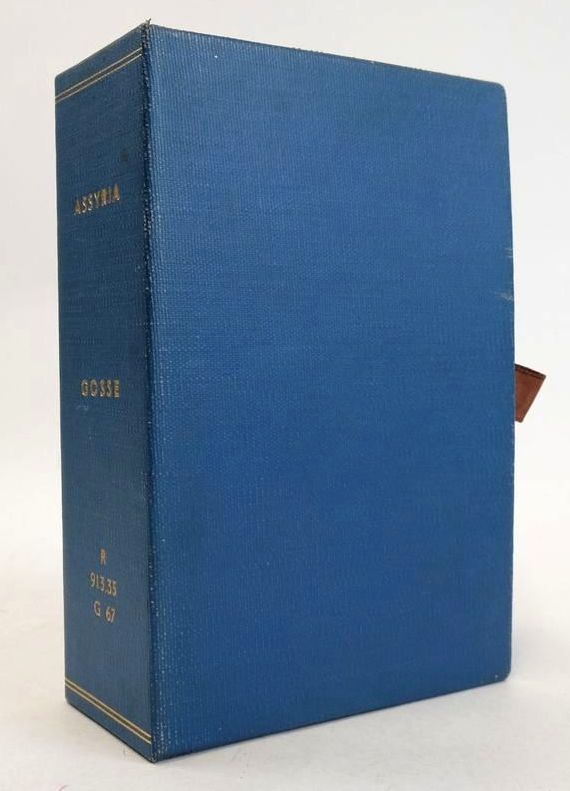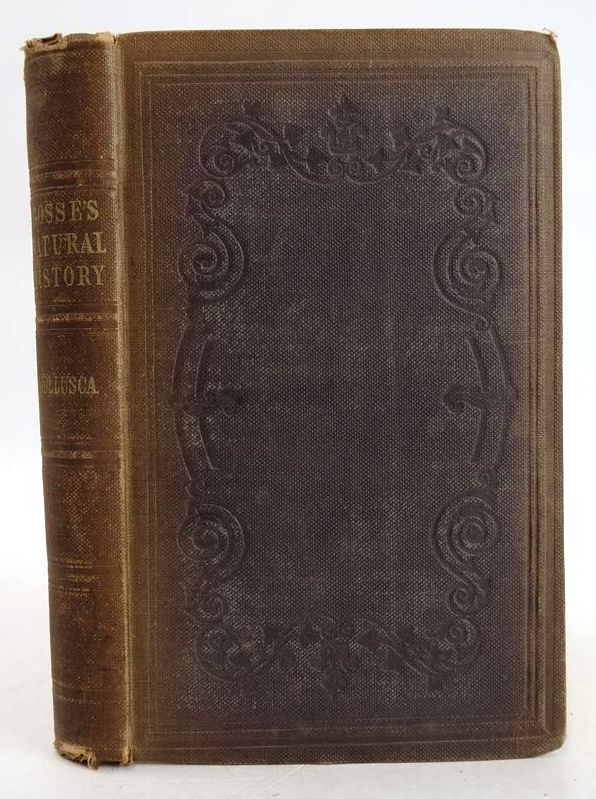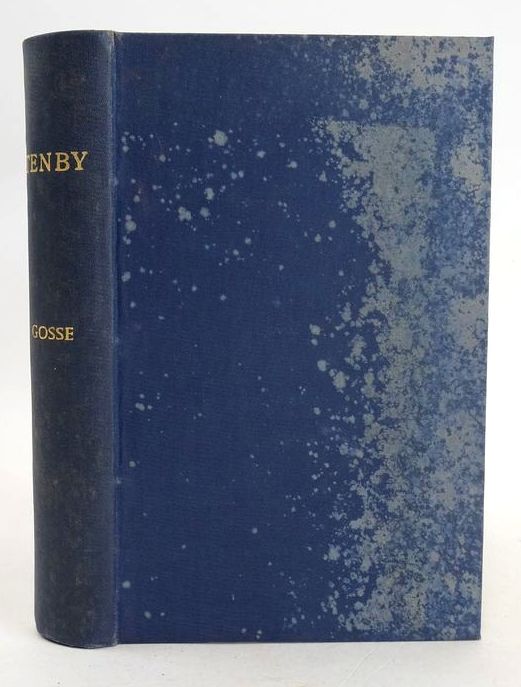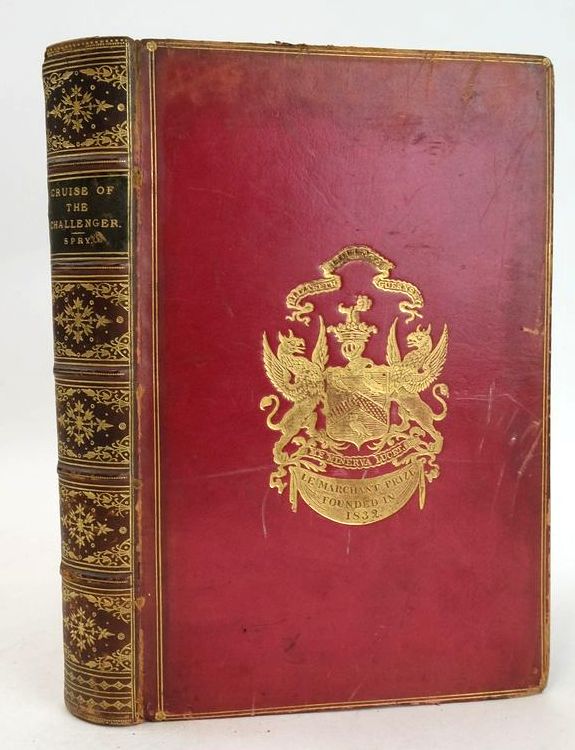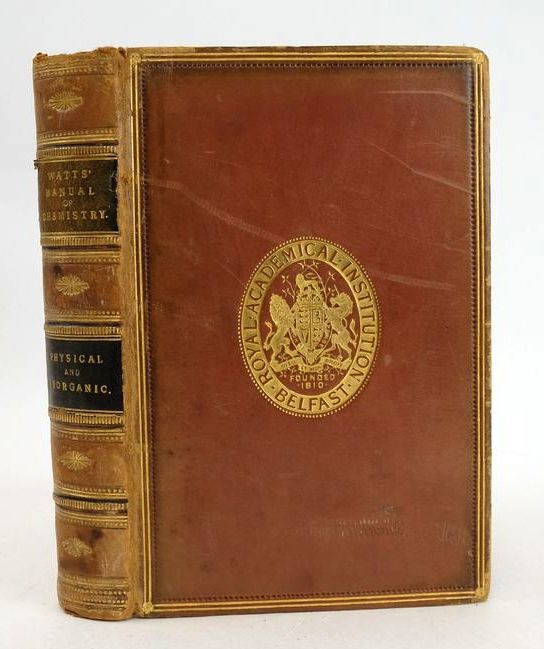Scenes of Commerce by Land and Sea
Scenes of Commerce by Land and Sea by Rev. Isaac Taylor
So, I was browsing the Natural History section in our Special Book Room on our website and this title caught my eye. That looks interesting I thought, especially when I saw the subtitle “Where Does It Come From? Answered”. And indeed, it is interesting!
Published almost 200 hundred years ago in 1839 by John Harris, leading British publisher of illustrated books and fiction from 1801 to 1839, this book has 396 pages including an index and 66 black and white engravings. Let’s take a look inside…
The preface gives a flavour of the contents: ‘In juvenile minds, the thirst for information manifests itself with peculiar ardour; and hence the questions, incessantly reiterated, - “What is it?” – “Where does it come from?” – “How is it made?” – The answers to these questions, may be made vehicles of very useful information’. The ‘Advertisement to the Third Edition’ adds that ‘this edition has been carefully revised and enriched by the addition of description of several new articles… such as the adaptation of Indian Rubber to various articles of dress and convenience; the application of Ashphaltum, as a cement and commodity for paving… and many similar accessions to our previously extended sources of British wealth’.
It quickly becomes apparent from the contents page that the questions of ‘Where does it come from?’ etc. are based on objects found in the home and the materials used in building homes. The contents therefore are helpfully organised, initially by rooms in the house, and then what can be found in those rooms. A couple that stood out to me were ‘The Brewhouse’ where ‘we see how our ordinary drink for dinner and supper is made’ and the ‘Sick Chamber’ in which we find out how certain food stuffs such as sago, tapioca and tamarinds were used in the treatment of patients as well as warnings about use of medicines, mineral waters and sea-bathing!
The book is written in the style of a story about the family of Mr. Paterson which ‘consisted of himself, his amiable wife and four interesting children’- James, Emma, Richard and Louisa – ranging in age from 6 to 14.
Some fascinating snippets of information I discovered:
- Under the heading ‘The Pantry – Geese’: At certain periods, large flocks of them are driven to London [from Lincolnshire]; from eight to ten thousand are to be seen together on the road, travelling at the rate of eight miles a day; their progress being urged by the gozzard, for so is called the man who has the care of them, by means of a red rag tied at the end of a long wand…. About the end of March, their quill feathers are pulled out, to make pens; and four or five times in the course of the summer, these poor animals are put to the farther torture of having their small feathers plucked off, that we may lie at ease upon our feather-beds, for which goose feathers are deemed the best.’
- Under the heading of ‘The Store-room - Whale Fishery’: Whales are valuable to those who catch them; a full-grown one being worth a thousand pounds. All the species furnish oil; the toothless kind also furnish whalebone, while the toothed sort yield spermaceti or stearine, the real nature of which was long unknown; but it is now agreed to be the brain of the whale, some tons of which are obtained from a single fish….
- The principal place in this country for ships in the whale fishery and for making train oil, is Hull, a large and populous town of Yorkshire, and ranking as the fourth seaport in the kingdom…. From this port, thirty or forty sail are usually fitted out, and manned with from two to three thousand sailors; so that almost every body in Hull, rich or poor, is interested in the trade.
- Under the heading ‘The Wardrobe – Furs’: In commerce, the term fur means a skin dressed with the hair on: when the hair is taken off, the skin becomes leather. An undressed skin is denominated a pelt; and hence peltry becomes a general name for the trade in skins, before they get into the furrier’s hands who dresses them and prepares them for use.
Among the animals which afford us their furs, we may reckon the following:
- Of the Feline or Cat Tribe; as, the lion, the tiger, the leopard, the panther, the lynx, and nearly all the smaller species of cats. In the latter, however, the fur is soon injured by water, as cats are not adapted either for burrowing under ground or living in wet places.
- Of the Canine or Dog Tribe, of which the fox is the chief; dogs in general not affording good furs.
- Of the Mustela or Weasel Kind; as, the sable, the marten, the ermine, the minx, and a variety of others, which are chiefly natives of cold climates and beasts of prey.
- Of the Sciurus, or Squirrel Kind, of which the species and varieties amount to between fifty and sixty; and all yield furs.
- Of the Mus, or Mouse A great many of these animals, though small, furnish beautiful furs; the hamster and chinchilla, remarkable for their delicate softness, are among the most numerous of this tribe.
- Under the heading ‘The Docks – Tobacco’: Tobacco is an American Herb… Sir Walter Raleigh introduced the use of it into Britain; and a pleasant story is told, that, having sent his servant to draw a jug of ale, he, in the interim, lighted his pipe of tobacco; and the servant returning, seeing smoke issue from his master’s mouth, threw the ale over him, not doubting that his head must be on fire!
- Tobacco is of some use in medicine; and James I, endeavoured to restrict it to that science but in vain. Its beneficial effects in this respect are few; and it must be classed as among the mere luxuries of life. As such, it is now very general among all nations; and, moderately used, may possibly be an excellent preservative from the ill effects of cold and damp.
Well – how times have changed!! I found this little book to be eminently readable. Wherever you dip into it you will find factual gems relating to British history and if, like me, you are intrigued by how we lived two centuries ago, you will find this book immensely enjoyable.
Contributed by Chris
(Published on 14th Oct 2023)


